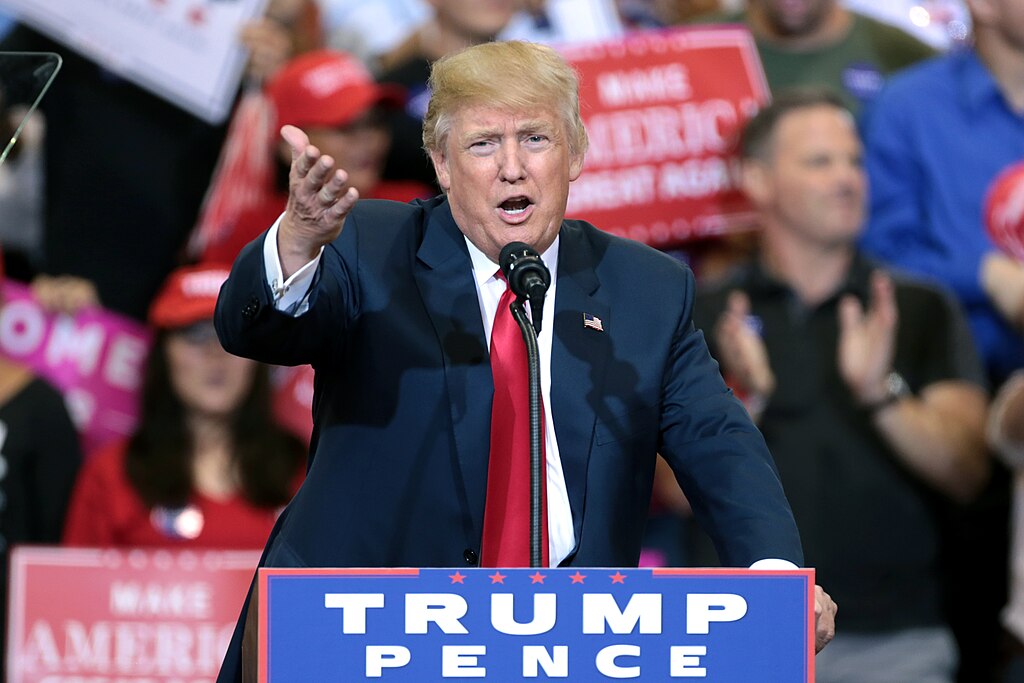In a recent campaign address, President-elect Donald Trump declared his intention to "stop transgender lunacy," signaling a commitment to implement policies that would restrict transgender rights across the United States. This announcement has ignited a nationwide debate, eliciting strong reactions from both supporters and opponents.
Proposed Policies Targeting Transgender Rights
Trump's proposed measures include prohibiting gender-affirming care for minors, banning transgender women from participating in women's sports, and reinstating a ban on transgender individuals serving in the military. He argues that these steps are necessary to protect children and maintain fairness in competitive sports. Critics, however, contend that such policies would infringe upon the rights of transgender individuals and exacerbate existing challenges faced by the LGBTQ+ community.
Historical Context and Policy Reversals
During his previous tenure, Trump implemented policies affecting transgender individuals, including a 2017 directive that reversed Obama-era protections allowing transgender students to use bathrooms corresponding with their gender identity. Additionally, in 2019, his administration enforced a ban on transgender individuals serving in the military. These actions were met with significant opposition from civil rights groups and sparked widespread protests.
Public Reaction and Social Media Discourse
Trump's recent statements have prompted a surge of reactions on social media platforms. Twitter user @EqualityForAll expressed concern, stating, "These proposed policies are a direct attack on transgender rights and set a dangerous precedent." In contrast, @ProtectOurKids supported the initiative, tweeting, "It's about time someone stood up to protect our children from harmful ideologies."
Another user, @TransRightsMatter, highlighted the potential impact on mental health: "Denying gender-affirming care can have devastating effects on transgender youth." Conversely, @FairPlaySports argued, "Ensuring fairness in women's sports is essential; this move is a step in the right direction."
Additionally, @LibertyAndJustice emphasized the importance of individual freedoms, noting, "We must safeguard the rights of all citizens, including transgender individuals." Meanwhile, @TraditionalValuesUSA commented, "Returning to traditional values will strengthen our society; this policy is a positive change."
Implications for the LGBTQ+ Community
Advocacy groups warn that implementing these policies could lead to increased discrimination and marginalization of transgender individuals. They emphasize the importance of access to gender-affirming care for the well-being of transgender youth and argue that inclusive policies in sports and the military promote diversity and equality. Legal experts anticipate that these proposed measures will face significant challenges in the courts, potentially leading to protracted legal battles.
As Trump prepares to assume office, his commitment to curbing what he terms "transgender lunacy" has intensified national discussions on transgender rights. The forthcoming policy decisions are poised to have profound implications for the LGBTQ+ community and the broader societal landscape. Stakeholders on all sides of the debate are mobilizing in anticipation of the policy shifts and the ensuing legal and social ramifications.



 Trump Orders Federal Agencies to Halt Use of Anthropic AI Technology
Trump Orders Federal Agencies to Halt Use of Anthropic AI Technology  Denver Mayor Orders Police to Protect Protesters, Restricts ICE Access to City Property
Denver Mayor Orders Police to Protect Protesters, Restricts ICE Access to City Property  Russia Downs 220 Ukrainian Drones in Major Air Defence Operation, Moscow Targeted
Russia Downs 220 Ukrainian Drones in Major Air Defence Operation, Moscow Targeted  Pakistan-Afghanistan Tensions Escalate as Taliban Offer Talks After Airstrikes
Pakistan-Afghanistan Tensions Escalate as Taliban Offer Talks After Airstrikes  Top Democrat Accuses DOJ of Withholding FBI Records in Trump-Epstein Investigation
Top Democrat Accuses DOJ of Withholding FBI Records in Trump-Epstein Investigation  UN Rapporteur Francesca Albanese Condemns “Toxic” Attacks Amid Calls for Resignation
UN Rapporteur Francesca Albanese Condemns “Toxic” Attacks Amid Calls for Resignation  Argentina Senate Approves Bill to Lower Age of Criminal Responsibility to 14
Argentina Senate Approves Bill to Lower Age of Criminal Responsibility to 14  Germany and China Reaffirm Open Trade and Strategic Partnership in Landmark Beijing Visit
Germany and China Reaffirm Open Trade and Strategic Partnership in Landmark Beijing Visit  Federal Judge Blocks Virginia Social Media Age Verification Law Over First Amendment Concerns
Federal Judge Blocks Virginia Social Media Age Verification Law Over First Amendment Concerns  Ecuador Raises Tariffs on Colombian Imports to 50% Amid Border Security Dispute
Ecuador Raises Tariffs on Colombian Imports to 50% Amid Border Security Dispute  Philippines, U.S., and Japan Conduct Joint Naval Drills in South China Sea to Boost Maritime Security
Philippines, U.S., and Japan Conduct Joint Naval Drills in South China Sea to Boost Maritime Security  Trump Floats Ted Cruz for Future U.S. Supreme Court Nomination
Trump Floats Ted Cruz for Future U.S. Supreme Court Nomination  Pentagon to Halt Ivy League Programs for U.S. Military Officers Starting 2026
Pentagon to Halt Ivy League Programs for U.S. Military Officers Starting 2026  Trump Media Weighs Truth Social Spin-Off Amid $6B Fusion Energy Pivot
Trump Media Weighs Truth Social Spin-Off Amid $6B Fusion Energy Pivot  Maduro Seeks Dismissal of U.S. Drug Trafficking Case, Citing Sanctions Interference
Maduro Seeks Dismissal of U.S. Drug Trafficking Case, Citing Sanctions Interference  U.S. Signals Openness to North Korea Talks as Kim Jong Un Calls for Shift in “Hostile Policy”
U.S. Signals Openness to North Korea Talks as Kim Jong Un Calls for Shift in “Hostile Policy”  Keir Starmer Faces Crucial By-Election Test in Manchester Amid Tight Three-Way Race
Keir Starmer Faces Crucial By-Election Test in Manchester Amid Tight Three-Way Race 



























